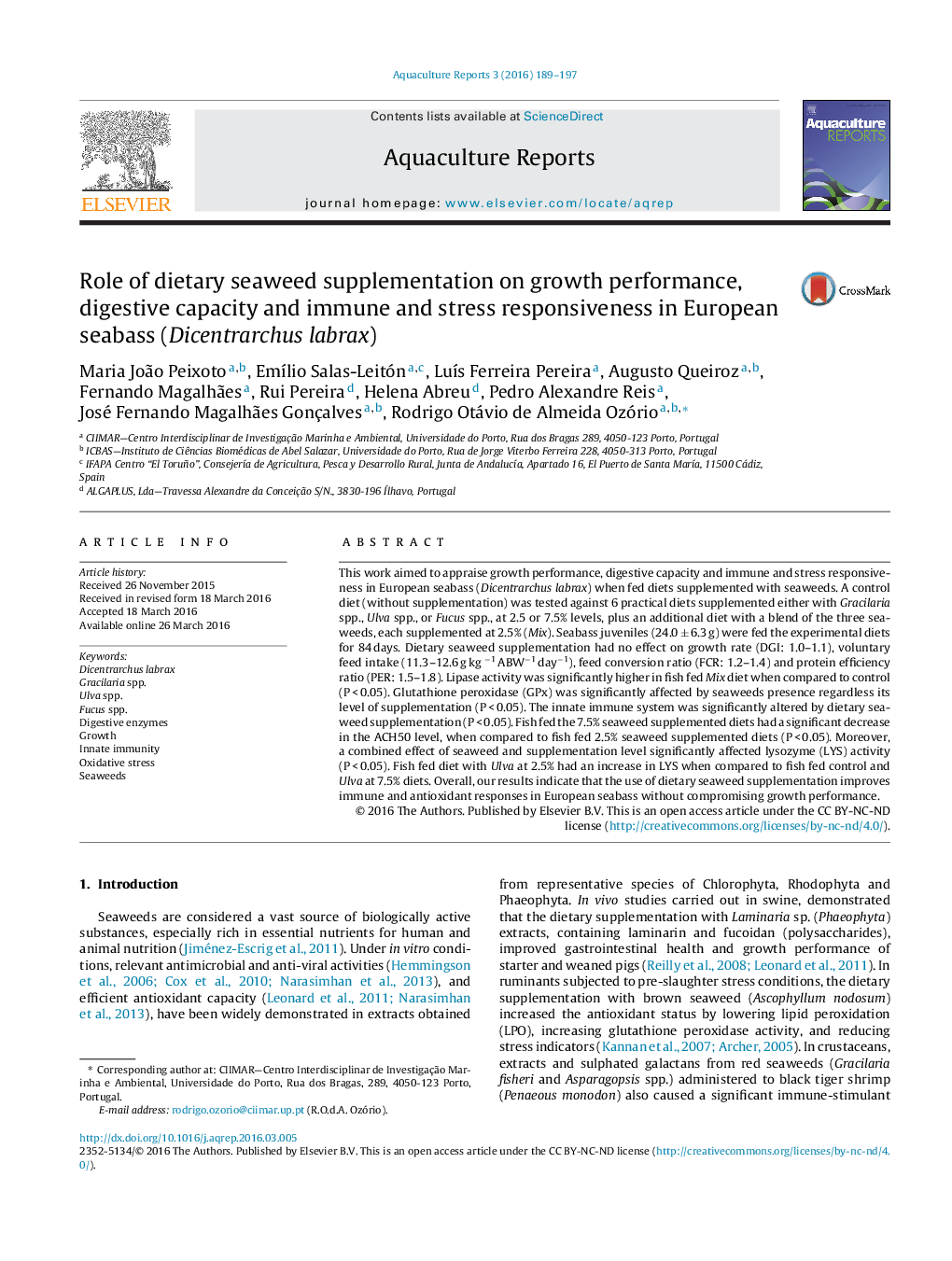| کد مقاله | کد نشریه | سال انتشار | مقاله انگلیسی | نسخه تمام متن |
|---|---|---|---|---|
| 4438017 | 1620277 | 2016 | 9 صفحه PDF | دانلود رایگان |

• Ulva spp., Gracilaria spp. and Fucus spp. were tested as dietary supplementation.
• Seaweeds were tested at 2.5 and 7.5% supplementation levels in seabass diets.
• Ulva spp. supplementation altered digestive capacity in seabass.
• Gracilaria spp. affected fish redox status, regardless of supplementation level.
• Dietary level of seaweed incorporation affected seabass immune responses.
This work aimed to appraise growth performance, digestive capacity and immune and stress responsiveness in European seabass (Dicentrarchus labrax) when fed diets supplemented with seaweeds. A control diet (without supplementation) was tested against 6 practical diets supplemented either with Gracilaria spp., Ulva spp., or Fucus spp., at 2.5 or 7.5% levels, plus an additional diet with a blend of the three seaweeds, each supplemented at 2.5% (Mix). Seabass juveniles (24.0 ± 6.3 g) were fed the experimental diets for 84 days. Dietary seaweed supplementation had no effect on growth rate (DGI: 1.0–1.1), voluntary feed intake (11.3–12.6 g kg −1 ABW−1 day−1), feed conversion ratio (FCR: 1.2–1.4) and protein efficiency ratio (PER: 1.5–1.8). Lipase activity was significantly higher in fish fed Mix diet when compared to control (P < 0.05). Glutathione peroxidase (GPx) was significantly affected by seaweeds presence regardless its level of supplementation (P < 0.05). The innate immune system was significantly altered by dietary seaweed supplementation (P < 0.05). Fish fed the 7.5% seaweed supplemented diets had a significant decrease in the ACH50 level, when compared to fish fed 2.5% seaweed supplemented diets (P < 0.05). Moreover, a combined effect of seaweed and supplementation level significantly affected lysozyme (LYS) activity (P < 0.05). Fish fed diet with Ulva at 2.5% had an increase in LYS when compared to fish fed control and Ulva at 7.5% diets. Overall, our results indicate that the use of dietary seaweed supplementation improves immune and antioxidant responses in European seabass without compromising growth performance.
Journal: Aquaculture Reports - Volume 3, May 2016, Pages 189–197